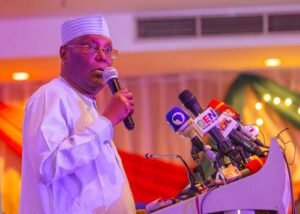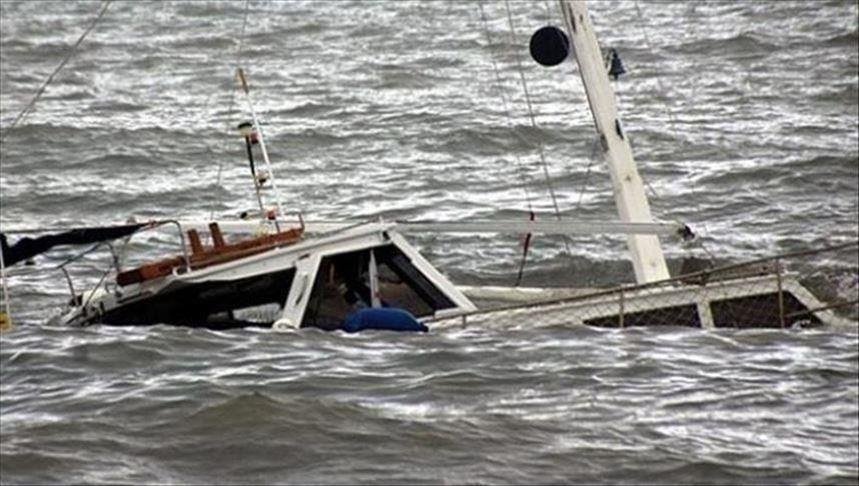The award of the Lagos-Calabar Coastal Highway contract to Hitech Construction Ltd, owned by Gilbert Chagoury, a business partner of Bola Tinubu, Nigeria’s president has raised serious questions about transparency and due process in the award of the contract.
In this report, Gom Mirian attempt to unveil the highest height of nepotism and incompetency surrounding this controversial contract. And how Seyi, Tinubu’s son and his surrogates in a company owned by Chagoury, got involved in the ‘job’, etc, etc.
Nigeria’s Lagos-Calabar Coastal Highway project aims to connect the country’s two major commercial centers, Lagos and Calabar, through a modern and efficient roadway. The project is important as it will enhance transportation, trade, and economic development along the coastal region.
The Nigerian government plans to develop the highway to improve connectivity, reduce travel time, and stimulate economic growth in the region.
The Controversial Contract Award
The award of the Lagos-Calabar Coastal Highway contract to Hitech Construction Ltd, a company with close ties to Bola Tinubu, has sparked widespread criticism and allegations of nepotism and incompetency. The fact that Tinubu’s son and his surrogates are on the board of a company owned by Gilbert Chagoury, the owner of Hitech Construction Ltd, raises serious concerns about conflict of interest and favoritisms in the contract award process.
“The awarding of the Lagos-Calabar coastal highway was rushed; the environmental impact assessment report was not even completed; the right of way for the 700 km stretch of the highway project was not secured; it was converted from a PPP to a government-funded project within the twinkle of an eye. The N500m that was approved by the National Assembly for the project was ignored, while over N1tn was released by Tinubu’s administration without approval from the National Assembly,” stated former Vice President Atiku Abubakar.

Reacting to Atiku’s allegations, the Special Adviser to the President on Information and Strategy, Bayo Onanuga admitted that Seyi is a member of the board of CDK, but said there was nothing wrong with it. Stating, “The fact that his father is now the President of Nigeria does not disqualify Seyi from pursuing legitimate business interests.”
Afenifere wants the project halted
Meanwhile, the pan-Yoruba socio-political organisation, Afenifere, has advised the Federal Government to halt and review the project after several calls by some Nigerians to re-examine the socio-economic and environmental impact of the road.
Lack of Due Process
The lack of due process in the award of the Lagos-Calabar Coastal Highway contract is a significant concern.
According to the Public Procurement Act 2007 and the Infrastructure Concession Regulatory Commission Act, the procurement process should follow a competitive public bidding procedure.
This process ensures fairness and transparency, allowing multiple interested parties to participate and compete on an equal footing. However, this is not the case with the Lagos-Calabar Coastal Highway contract awarded to the Hitech Construction Company Limited as this contract award is an apparent lack of due process.

It has been reported that the award did not follow the standard procedures for public procurement. There was no open bidding process, and the contract did not receive the necessary approval from the National Assembly.
A lawmaker at the Nation Assembly, Austin Achado, representing the Gwer/Gwer West federal constituency has called for an investigation into the procurement process and award of the contract, stating, “The House is disturbed that the contingent liabilities accruing to the Federal Government of Nigeria on this project violate the Debt Management Office (Establishment) Act of 2023, as Section 22(3) states that the minister shall not guarantee an external loan unless the terms and conditions of the loan shall have been laid before the National Assembly and approved by its resolution.” This further underscores the lack of due process and legality surrounding the contract award.
Meanwhile, in a document titled ‘Certificate of No Objection for Award of Contract’ from the BPP, dated February 23, 2024, it was revealed that the section of the road spans 47.474km. The document, signed by Mamman Ahmadu, Director-General, BPP, and Engr. Isaiah G. Yesufu, Bureau of Public Procurement, (BPP), states that the Bureau of Public Procurement (BPP) has confirmed that the project has satisfied all due process requirements for the issuance of a “No Objection” to proceed to seek Federal Executive Council’s (FEC) Approval for the award of the Contract.
The project is named “Award of Contract for the Construction of Lagos – Calabar Coastal Road Corridor, Phase 1; Section I: Ahmadu Bello Way to Eleko Village Area in Lekki Peninsula (CH 0+00 – CH 47.474km).” The Project Contractor is Messrs Hitech Construction Company Limited, and the BPP Reviewed Project Cost is “N1,067,887,381,148.61 (One Trillion, Sixty-Seven Billion, Eight Hundred and Eighty-Seven Million, Three Hundred and Eighty-One Thousand, One Hundred and Forty-Eight Naira and Sixty-One kobo) only, inclusive of 7.5% Vat.” The Cost Reduction is N33,883,890,722.40 (Thirty-Three Billion, Eight Hundred and Eighty-Three Million, Eight Hundred and Ninety Thousand, Seven Hundred and Twenty-Two Naira and Forty Kobo) only.
Regarding the source of funding, the document noted that “Mr. President approved that the Phase 1; Section I of the Lagos – Calabar Coastal Road Corridor project shall be funded by the Federal Government. The approval was conveyed to the Federal Ministry of Works vide State House letter Ref. No. PRES/89/MW/18 dated January 24, 2024,” it added, noting that the implementing ministry/agency is the Federal Ministry of Works.
Cost of Project: N15.356 Trillion and Completion: Eight Years

In April, the Minister of Works, Dave Umahi, stated that the coastal road project would cost a tentative sum of N15.356 trillion and that the project would be completed in eight years during an appearance on Channels Television’s Morning Brief programme.
The Role of Tinubu’s Business Partner

Gilbert Chagoury, the owner of Hitech Construction Ltd, is not only a business partner of Bola Tinubu but also a controversial figure with a history of legal and ethical issues. His close ties to the ruling administration and the award of such a significant contract have fueled suspicions of undue influence and cronyism. The involvement of Chagoury in this contract further highlights the blurred lines between business interests and political power, raising concerns about the integrity of the decision-making process.
Implications for Development and Governance
The award of the Lagos-Calabar Coastal Highway contract under such contentious circumstances has far-reaching implications for development and governance in Nigeria. The lack of transparency and due process in awarding major infrastructure projects undermines public trust and confidence in the government. It also sets a dangerous precedent for future contracts, potentially perpetuating a culture of nepotism and favouritism at the expense of fair competition and public interest.
Public Outcry and Accountability
The controversial nature of this contract award has sparked public outcry and demands for accountability. Civil society organizations, opposition parties, and concerned citizens have called for a thorough investigation into the process leading to the award of the contract. The need for transparency, accountability, and adherence to due process has become a rallying cry for those seeking to uphold the principles of good governance and ethical conduct in public procurement.
In light of the serious allegations of nepotism and incompetency surrounding the Lagos-Calabar Coastal Highway contract award, the relevant authorities must conduct a thorough and independent investigation into the matter. Transparency, accountability, and adherence to due process must be upheld to restore public trust and confidence in government contracts. Additionally, measures should be put in place to prevent similar instances of nepotism and favoritism in future procurement processes, ensuring fair competition and the best interests of the public.



